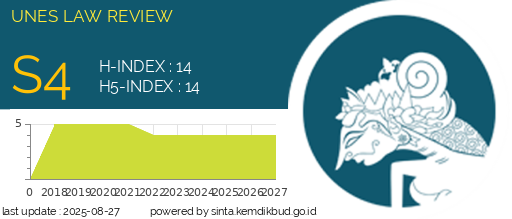The Concept of Implementing The Policy of Rehabilitation of Drug Abuse Based On The Restorative Justice Approach By The Prosecutor's Office of The Republic Of Indonesia
DOI:
https://doi.org/10.31933/unesrev.v6i4.2088Keywords:
Policy, Rehabilitation, Narcotics Restorative Justice. Attorney General's Office of the Republic of IndonesiaAbstract
This study discusses the policy of Guideline Number 18 of 2021 concerning the settlement of drug abuse cases through rehabilitation with a restorative justice approach as an implementation of the dominus litis principle by the Indonesian Attorney General's Office. The implementation of the drug abuse rehabilitation policy by the Indonesian Attorney General's Office based on the dominus litis principle is regulated in the Attorney General's Guideline Number 18 of 2021. This policy addresses the number of drug convicts that exceed capacity with a restorative justice approach. The dominus litis principle gives prosecutors great authority in controlling the legal process, including the decision to continue or stop prosecution based on sufficient evidence. In addition, this principle allows for the termination of prosecution if the perpetrator's actions are not considered a crime. This policy gives prosecutors the authority to determine legal settlements with rehabilitation, prioritizing the recovery of perpetrators and positive impacts on society. Rehabilitation focuses on changing the behavior of perpetrators through programs that help them overcome drug addiction and improve their social skills. In addition to providing legal protection and the rights of perpetrators, this approach also emphasizes the principle of fast, simple, and low-cost justice, and avoids complicated and expensive legal processes. The principle of restorative justice in this policy aims to improve the negative impacts of drug abuse, by emphasizing the physical, mental, social, and emotional recovery of perpetrators, so that they can return to being productive members of society.
Downloads
References
Ari Yusuf Amir, 2008, Strategi Bisnis Jasa Advokat, Yogyakarta: Navila Idea,
Bernard L. Tanya, 2014, Moralitas Hukum, Yogyakarta : Genta Publishing,
Mukuan, Candra Gabriel. 2017. “Pertimbangan Hukum Atas Putusan Hakim Terhadap Tindak Pidana Psikotropika (Undang-Undang Nomor 35 Tahun 2009)”. Lex Et Societatis, 5(7).
Pande Ni Luh Putu Ayu Riantini , NiPutu Melsa Aryani Putri, 2019, “Politik Hukum Dalam Kebijakan Hukum Pidana Dalam Pengaturan Tindak Pidana Narkotika Diindonesia” Ganesha Civic Education Journal, 1(2),
Sarbini, Ilyas, & Ma’arij, Aman, 2020, “ Restorative Justice Sebagai Alternatif Penyelesaian Perkara Pidana”. Fundamental: Jurnal Ilmiah Hukum, 9(1),
Wenda Hartanto, 2017, “Penegakan Hukum Terhadap Kejahatan Narkotika Dan Obat-Obat Terlarang Dalam Era Perdagangan Bebas Internasional Yang Berdampak Pada Keamanan Dan Kedaulatan Negara”, Jurnal Legislasi IndonesiaI, 14(1),
Downloads
Published
How to Cite
Issue
Section
License
Hak cipta :
Penulis yang mempublikasikan manuskripnya di jurnal ini menyetujui ketentuan berikut:
- Hak cipta pada setiap artikel adalah milik penulis.
- Penulis mengakui bahwa UNES Law Review berhak menjadi yang pertama menerbitkan dengan lisensi Creative Commons Attribution 4.0 International (Attribution 4.0 International CC BY 4.0) .
- Penulis dapat mengirimkan artikel secara terpisah, mengatur distribusi non-eksklusif manuskrip yang telah diterbitkan dalam jurnal ini ke versi lain (misalnya, dikirim ke repositori institusi penulis, publikasi ke dalam buku, dll.), dengan mengakui bahwa manuskrip telah diterbitkan pertama kali di Jurnal UNES Law Review.



















